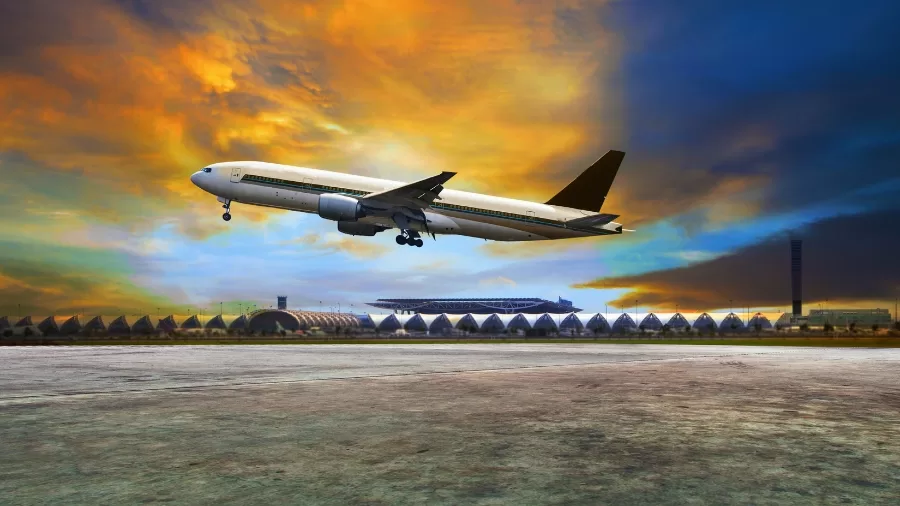Travel
Flight Delays Explained: How Weather Affects UK Air Travel

- Severe flight disruptions at British Airports result from weather conditions due to strict safety limits and consequently reduced capacity by air traffic control.
- Snow, fog and storm cause weathers that disturb tight schedules leading to delays, cancellations and diverted flights.
- With climate change being anticipated to increase the incidence of extreme weather events, air travel will continue to face more complicating conditions thus resulting in more interruptions.
Travel disruptions have occurred in Britain and still being caused by heavy winds and fog most recently, as well as the amber warning for snow and ice from the midlands through northern England and Wales. However, it is physically impossible to imagine flying in such adverse weather: hence, the transportation activities are bound to be delayed and cancelled, prompting speculation on why such a country, generally viewed as poor weathered, should restrict its air travel given the highly technological advances made by this nation towards aviation capability.
The Efficiency and Chaos Paradox
Today’s aircraft are designed to withstand extreme weather conditions, including snow, ice, fog, or intense wind. However, one sure-fire way to ensure safety during any of these conditions is Air Traffic Control (ATC). During bad weather, ATC then has to institute stringent safety measures that result in quite long distances between aircraft. As travel expert Simon Calder said when talking about it, “Airports go into a kind of slow motion,” hence capacity really goes down and cancellations.
That state of reduced capacity might really look like being in a falling domino chain. Referring, for instance, to an airport such as London Heathrow, the operations are drastically slowed down when weather deteriorates with as much as an aircraft landing every 80 seconds. For that weekend of heavy fog at London Gatwick, the upsurge of about 75,000 passengers suffers the consequences, indicating that such changes play well into the very fragile balance between efficiency and chaos in the aviation world.
Adverse Weather Effects
Another enemy of schedules is the weather, which sometimes forces aircraft to be diverted, as could happen with James and Madison King. They had flown all the way from Stockholm to London, only to find themselves in Dublin because of spacing restrictions due to fog and because they had not enough fuel to hold patterns. This caused an unexpected overnight stay in Stockholm and incurred a hefty personal cost.
Although some airports have already begun to use artificial intelligence for improving the landing capabilities of aircraft during low visibility, human controllers still require visual confirming evidence of arriving aircraft. Most of the modern aircraft can automatically perform landings under heavier fog but visibility restrictions still make taxiing after landing easy and safe, according to aviation expert Scott Bateman MBE.
Snow and Its Disruptions
Snow has been a cause of major havoc in the UK historically. Major runways at major airports have totally closed – for instance the Manchester and Heathrow airport-from snow. While British airports have spent much on improved snow-clearing equipment and training, they suffer compared with Iceland or Greenland, where snow airports are far more normal.
It’s a mild climate, and Simon Calder says that this cold country would not make it feasible for any huge expenditures done for infrequent snowfall. However, it could intensify worsening global climatic changes under which extreme-weather events would happen more often and badly, creating difficulty in flight schedules managed by the UK itself.
A Climate Threat Future and Challenges in Aviation
This means that there will be stronger, often more frequent, storms that will cause increasingly turbulent, rough air during flights as the temperature rises, declares Dr. Ella Gilbert from British Antarctic Survey. According to reports, global warming has posed a huge challenge to air traffic in the near future because such extreme weather events, like storms and deluges, will increasingly disrupt air traffic.
The UK’s national air traffic service NATS has implemented specialized equipment for accurate weather forecasting and cutting-edge technology along pilots’ boards to prevent such disturbances. All this denotes sacrificing air traffic flow regulations, hence allowing increased delays and cancellations even due to bad weather.
Rights of Passengers in Case of Disturbances
Rights of passengers in case of delay and cancellation of flights due to bad weather are subject to meeting certain conditions. One of these conditions typically involves provision by carriers of meals, accommodation, and other onward transport arrangements. However, compensation for delay of a flight would apply only to a delay which is incurred and is subject to control by the airline. Therefore, under these circumstances, weather should not fall under compensation for delay.
Britain still grapples with the travel chaos that has been brought about by weather events. This clarifies what kind of unfortunate events it is and how preparation works to help passengers face specific aspects of disrupted travel in a world of air travel that has grown increasingly complicated.





















































